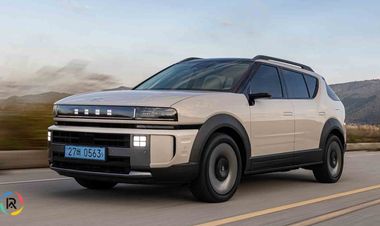Aichi, Japan- Toyota Motor Corporation (Toyota)., and the BMW AG (BMW)., have renewed their partnership to advance hydrogen technology, focusing on fuel cell systems and infrastructure. Since their initial 2011 agreement, the companies have collaborated on environmental technologies and sports cars. Their renewed commitment aims to accelerate progress towards a hydrogen-based society and overall carbon neutrality.
They advancing their hydrogen partnership by developing a third-generation fuel cell system for broader passenger car use. BMW plans to launch its first mass-produced fuel cell electric vehicle in 2028. The collaboration aims to lower costs and increase FCEV availability. Additionally, Toyota and BMW are working to create sustainable hydrogen supply networks by partnering with hydrogen producers and refueling facilities to build demand clusters and ensure a stable, cost-effective hydrogen supply, supporting the growth of a hydrogen society.
Mr. Koji Sato, President of Toyota, said, "We are pleased that the collaboration between BMW and Toyota has entered a new stage. In our long history of partnership, we have confirmed that BMW and Toyota share the same passion for cars and belief in "technology openness" and a "multi-pathway" approach to carbon neutrality. Based on these shared values, we will deepen our collaboration in efforts such as the joint development of next-generation fuel cell systems and the expansion of infrastructure, aiming forthe realization of a hydrogen society. We will accelerate our efforts together with BMW and partners across various industries to realize a future where hydrogen energy supports society."
Mr. Oliver Zipse, Chairman of the Board of Management, BMW AG, said, "This is a milestone in automotive history the first-ever series production fuel cell vehicle to be offered by a global premium manufacturer. Powered by hydrogen and driven by the spirit of our cooperation, it will underscore how technological progress is shaping future mobility. And it will herald an era of significant demand forfuel cell electric vehicles."
Toyota has positioned hydrogen as a key energy source in its efforts to achieve carbon neutrality, and has been advancing initiatives in collaboration with many partners across the areas of "producing, transporting, storing, and using" hydrogen. Toyota aims to be best-in-town by conducting locally rooted management that caters to each region's market characteristics and customer needs. Moving forward, we will continue to address the needs of customers in each region by focusing on a multi-pathway approach that includes FCEV, BEV, HEV, and PHEV options, all while steadily working towards reducing CO2 emissions.







